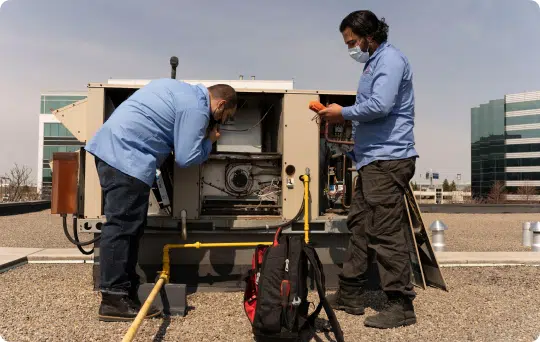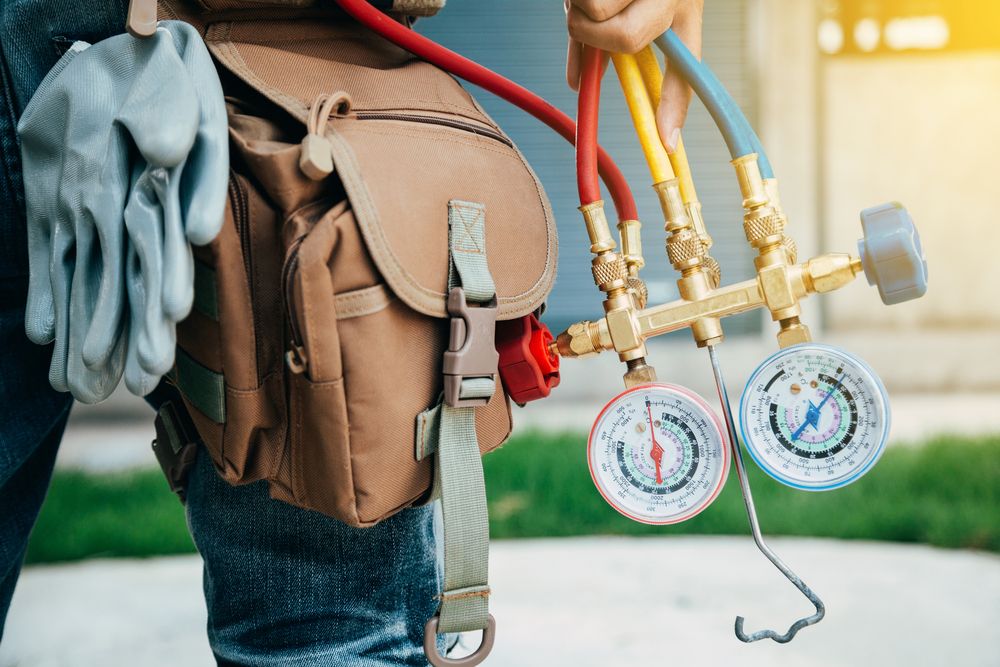Energy-Efficient HVAC Systems to Conserve on Utility Bills
As energy expenses proceed to increase, the relevance of energy-efficient HVAC systems comes to be increasingly noticeable. These systems not only assure substantial cost savings on energy costs but likewise contribute to a more sustainable future by reducing energy usage.
Benefits of Energy-Efficient A/c Systems
Energy-efficient Heating and cooling systems provide countless benefits that extend beyond plain price savings. By eating less energy, these systems add to reduce greenhouse gas discharges, aiding to combat environment adjustment and promote sustainability.
Additionally, energy-efficient cooling and heating systems commonly give boosted convenience levels. Numerous of these systems include innovative modern technology that permits far better temperature control and improved air quality (DMAKS HVAC). This leads to a healthier indoor environment, which is particularly essential for individuals with allergies or respiratory issues
Additionally, buying energy-efficient heating and cooling systems can enhance residential property value. As more consumers focus on power effectiveness, homes and buildings furnished with these systems may bring in greater quotes in the realty market.
Types of Energy-Efficient Heating And Cooling Options
How can homeowners and businesses choose one of the most ideal energy-efficient a/c choices for their needs? The market provides a variety of energy-efficient cooling and heating systems, each created to enhance convenience while decreasing power consumption.
One alternative is the variable refrigerant circulation (VRF) system, which effectively controls the temperature level in several areas within a building. This system adjusts its refrigerant circulation to match the preferred temperature, resulting in considerable energy cost savings.
An additional popular choice is geothermal warmth pumps, which use the planet's stable temperature to warm and awesome rooms. By transferring warm to and from the ground, these systems demonstrate remarkable effectiveness, particularly in moderate environments.
In addition, ductless mini-split systems supply an energy-efficient alternative for homes lacking ductwork. These systems permit zone-specific heating & cooling, lowering energy waste in empty areas.
Finally, high-efficiency furnaces and air conditioning unit, with advanced SEER and AFUE rankings, use reliable environment control while consuming less power than conventional models. By reviewing these options, house owners and organizations can select a HVAC system tailored to their particular requirements and power performance goals.
Secret Attributes to Take Into Consideration

Next, explore the kind of compressor used in the system. DMAKS HVAC. Variable-speed compressors can readjust their output to match the home heating or cooling need, causing boosted comfort and power cost savings contrasted to single-speed designs. In addition, search for systems equipped with wise thermostats that use programmable settings and remote accessibility, enabling for far better control over energy usage
Another vital function is the system's air filtering ability. High-efficiency filters can enhance interior air top quality and lower power consumption by making certain the system runs efficiently. Think about the kind of cooling agent utilized; modern systems frequently employ environmentally friendly refrigerants that have a reduced ecological influence.
Lastly, guarantee click here to read that the system is compatible with zoning technology, which permits personalized temperature control in various areas of your home, improving convenience while decreasing power use.
Tips for Choosing the Right System

Following, take into consideration power efficiency ratings, specifically the Seasonal Energy Effectiveness Ratio (SEER) for cooling down systems and the Annual Fuel Application Performance (AFUE) for furnace. Higher rankings show higher performance, which can bring about substantial savings on energy expenses over time.
Furthermore, examine the type of HVAC system that ideal suits your way of living and budget plan. Options consist of central air, ductless mini-splits, and heatpump, each with its own set of benefits and drawbacks.
Do not neglect the relevance of appropriate installment and sizing; an inaccurately sized system can result in inadequacies and boosted wear. Consult with an expert Cooling and heating professional to get professional referrals tailored to your home's distinct needs. This thorough strategy will ensure that you select an energy-efficient heating and cooling system that meets your requirements and budget successfully.
Upkeep for Optimal Efficiency
When the appropriate HVAC system is in location, ongoing informative post upkeep comes to be key to guaranteeing optimum efficiency and longevity. A properly maintained system runs better, leading to reduced energy usage and lowered energy costs. Normal inspections and tune-ups need to be set up at the very least twice a year-- once before the cooling period and when before the home heating period.

Home owners must also be attentive about monitoring their HVAC system's performance. Uncommon noises, changing temperatures, or increased energy expenses can show underlying concerns that require instant focus. By dealing with these worries quickly, home owners can avoid pricey repairs and prolong the life-span of their systems.
Purchasing a maintenance strategy with a certified specialist not just boosts efficiency however also offers satisfaction, recognizing that the system is running at its best. DMAKS HVAC. Routine upkeep is consequently important for sustaining energy effectiveness and lowering general operational expenses
Final Thought
Finally, energy-efficient HVAC systems offer a viable option for minimizing utility expenses while enhancing comfort and air high quality. By integrating sophisticated innovations and options such as geothermal heatpump and ductless mini-splits, home proprietors can achieve significant power cost savings and add to ecological sustainability. Mindful factor to consider of system attributes and ongoing maintenance further ensures optimal efficiency, read this post here making energy-efficient systems a sensible investment for both economic and ecological advantages.